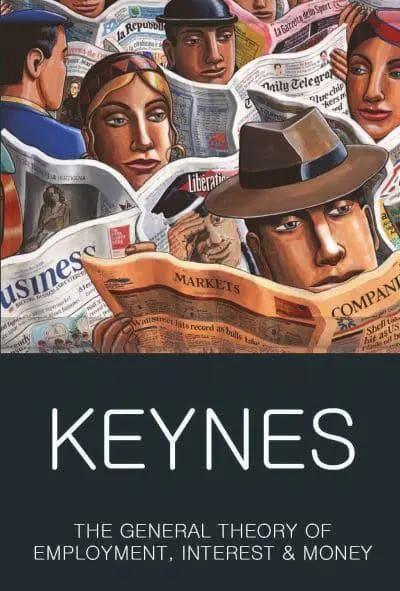The General Theory of Employment, Interest and Money

Ratings/reviews counts are updated frequently.
Check link for latest rating. ( 106 ratings, 11 reviews)Read More
Book Hero Magic created this recommendation. While it's new and still learning, it may not be perfect - your feedback is welcome! IS THIS YOUR NEXT READ?
The General Theory of Employment, Interest and Money
John Maynard Keynes is perhaps the foremost economic thinker of the 20th century. He ranks with Adam Smith and Karl Marx; and his impact on how economics was practiced, from the Great Depression to the 1970s, was unmatched.
John Maynard Keynes, the 1st Baron Keynes CB FBA, was a British economist whose ideas have profoundly shaped modern macroeconomics and governmental economic policy. His landmark work, The General Theory of Employment, Interest and Money, originally published in 1936, stands as a cornerstone in economic literature. This monumental text delves into the complexities of economic systems, the nature of employment, and the intricacies of interest rates and money supply, presenting a comprehensive framework that challenged classical economics and introduced revolutionary concepts aimed at understanding and mitigating economic downturns.
Navigating through the economic turmoil of the Great Depression, Keynes formulated theories that underscored the significance of aggregate demand in influencing economic productivity and employment levels. He ardently argued that only through proactive government intervention and fiscal policy could economies be steered out of recession and unemployment alleviated. Contrary to the then-dominant laissez-faire approach, Keynes’s advocacy for government expenditure during economic slumps provided a profound shift in economic strategy, promoting stability and sustained growth.
Keynes’s approaches are encapsulated with his lucid prose and compelling arguments, which maintain their intellectual vigour and practical relevance even today. His analyses on the consequences of saving and investment behaviour, the role of interest rates in influencing economic equilibrium, and the potent effects of monetary policy brought forth a paradigm that has informed economic practice from the mid-20th century to the present day.
Besides his seminal contribution through The General Theory of Employment, Interest and Money, Keynes's earlier work, The Economic Consequences of the Peace (1919), critically examined the punitive economic measures placed on Germany post-World War I. This work illustrated Keynes's ability to foresee the disastrous economic and political ramifications of the Treaty of Versailles, advocating instead for policies that promoted rebuilding and economic cooperation.
John Maynard Keynes’s legacy as an economic visionary is undisputed. His development of macroeconomic theory continues to underpin modern economic policy-making, resonating through the complexities of contemporary economic challenges. His insights into unemployment, wealth disparities, and economic governance underscore the dynamism and enduring relevance of his work.
Series: Classics of World Literature
View allBook Hero Magic summarised reviews for this book. While it's new and still learning, it may not be perfect - your feedback is welcome! HOW HAS THIS BEEN REVIEWED?
The General Theory of Employment, Interest and Money is praised for its groundbreaking exploration of macroeconomic concepts, challenging classical economics. Reviewers highlight its profound influence on economic policy and theory, though some find its dense prose challenging. The book is lauded for its revolutionary ideas on government intervention and economic stability.

Book Details
INFORMATION
ISBN: 9781840227475
Publisher: Wordsworth Editions Ltd
Format: Paperback / softback
Date Published: 05 March 2017
Country: United Kingdom
Imprint: Wordsworth Editions Ltd
Contributors:
- Series edited by Tom Griffith
- Introduction and notes by Dr Mark G Spencer
Audience: General / adult
DIMENSIONS
Spine width: 29.0mm
Width: 129.0mm
Height: 198.0mm
Weight: 356g
Pages: 576
More from Education & Reference
View allWhy buy from us?
Book Hero is not a chain store or big box retailer. We're an independent specialist on a mission to help more Kiwis rediscover a love of books and reading!

Service & Delivery
Our cozy 200m2 warehouse in Auckland holds over 10,000 books in-stock so you're not waiting for books to arrive from overseas.

Auckland Pick Ups
We're an online-only store but for your convenience you can pick up your order for free from our warehouse in Hobsonville.

Our Gifting Service
Books make wonderful thoughtful gifts and we're here to help with gift-wrapping and cards. We can even send your gift directly to your loved one.





























